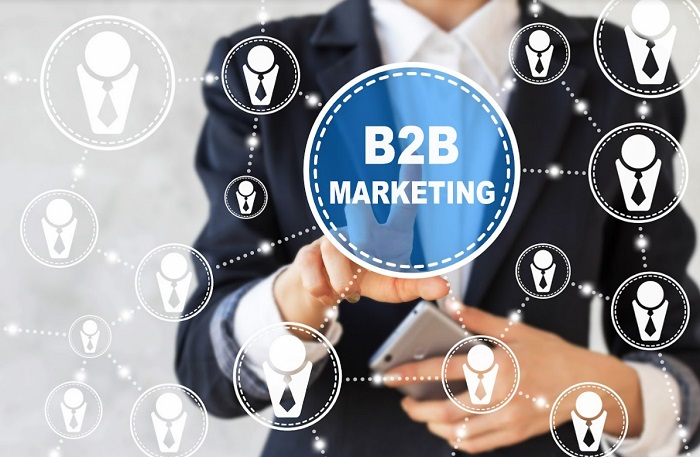When working with European wholesale suppliers, it’s crucial to navigate the landscape effectively to build solid, long-term business relationships. Europe is home to many suppliers across various industries, offering high-quality products. However, to get the most out of your dealings with wholesale suppliers in Europe, you must understand the unique dynamics of the region’s markets, laws, and logistics. This article offers essential tips to help businesses work efficiently with European wholesale suppliers and build successful partnerships.
Table of Contents
Toggle1. Understand the European Market
Europe is not a homogenous market, and each country within the European Union (EU) or outside it has its own unique business practices, consumer preferences, and regulatory requirements. Whether you are sourcing electronics from Germany, textiles from Italy, or food products from Spain, understanding these differences is key.
- Cultural Differences: Business etiquette varies from country to country. For example, Germans may prefer formal communication and detailed contracts, while Italians may place more importance on building personal relationships before entering into business agreements.
- Market Preferences: Consumers in different European countries often have varied preferences regarding product quality, price points, and brand reputation. Make sure you are aware of the preferences in the market you are targeting, as it will impact the types of suppliers and products that will be the best fit for your business.
2. Check Supplier Credibility
When sourcing products from wholesale suppliers in Europe, it’s essential to ensure you’re working with reputable businesses. Vetting suppliers for reliability, quality standards, and legitimacy is a critical step that should never be overlooked.
- Research Thoroughly: Use online marketplaces and supplier directories to search for reviews and feedback on potential suppliers. Always verify their registration, certifications, and industry standing.
- Request Samples: Before making bulk orders, request product samples. This will help you assess the quality and authenticity of the products you are looking to source.
- Supplier Audits: If possible, conduct supplier audits either personally or through a third-party agency to evaluate the facilities, quality control processes, and business practices of the supplier.
3. Familiarize Yourself with EU Regulations
One of the biggest challenges for businesses outside of Europe is navigating the EU’s strict regulatory environment. The EU has stringent standards on product quality, safety, labeling, and environmental impact.
- Product Regulations: Depending on your industry, you will need to comply with specific EU regulations. For example, CE marking is mandatory for products like electronics and toys. If your product doesn’t meet EU standards, it cannot be legally sold in Europe.
- Customs and Tariffs: For businesses outside of Europe, understanding import duties and taxes is vital. The EU has a common customs tariff for goods imported from outside the EU, while European Free Trade Association (EFTA) countries and certain others may benefit from preferential tariff rates.
Understanding these rules can prevent delays, fines, or even the confiscation of your goods at the border.
4. Choose the Right Shipping and Logistics Partners
The logistical aspect of working with European wholesale suppliers can be complex due to differing transportation infrastructures and legal frameworks across countries.
- Reliable Shipping: Europe has excellent transportation networks, but it’s crucial to select reliable shipping companies that offer flexibility, tracking, and timely delivery. Whether you are shipping via road, rail, air, or sea, choosing the right logistics partner can reduce risks and ensure smooth delivery.
- Warehousing Solutions: Consider whether you need warehousing within Europe. Many wholesale suppliers in Europe offer dropshipping services, or you may need third-party logistics (3PL) companies for storage and order fulfillment.
- Delivery Costs: Always negotiate delivery costs upfront. Depending on your product and volume, suppliers may offer better rates for bulk shipping. Consider the possibility of consolidating shipments to reduce shipping costs.
5. Negotiate Payment Terms and Contracts
Unlike some regions where business agreements are often informal, European suppliers typically prefer formal contracts that cover all aspects of the transaction.
- Clear Contracts: Contracts should outline all terms and conditions, including product specifications, delivery timelines, payment schedules, and warranty policies. This helps prevent misunderstandings later on.
- Payment Terms: Be mindful of the payment terms offered by your supplier. Many European wholesale suppliers offer Net-30 or Net-60 terms (meaning payment is due 30 or 60 days after delivery), but it is important to negotiate terms that align with your cash flow. Offering partial payments upfront or establishing credit terms can be beneficial for long-term partnerships.
6. Be Prepared for VAT and Tax Regulations
When importing goods from wholesale suppliers in Europe, value-added tax (VAT) is a major consideration. The EU requires businesses to register for VAT in the country where they import goods, and this can get complicated depending on your business structure and location.
- VAT Registration: If you plan to sell goods in the EU, it’s likely that you’ll need to register for VAT in the country where your business is based or where the goods are being sold. Different countries may have varying thresholds for VAT registration.
- VAT Refunds: In certain circumstances, non-EU businesses can claim VAT refunds on goods purchased from Europe. This can be a time-consuming process but is worth exploring if your margins are tight.
7. Use Trusted Marketplaces
Finding reliable wholesale suppliers in Europe can be challenging, but using trusted B2B platforms can simplify the process. Below is a list of marketplaces where you can source wholesale suppliers in Europe, with eWorldTrade being a top recommendation.
Top European Wholesale Marketplaces:
- eWorldTrade – One of the leading global B2B platforms, eWorldTrade connects you to thousands of suppliers across Europe. With a strong focus on supplier verification and secure transactions, it’s a reliable platform for businesses seeking wholesale suppliers.
- Alibaba – Although a global platform, Alibaba has a strong presence in Europe and offers a wide variety of European suppliers across multiple industries.
- Europages – A dedicated European directory of B2B companies, Europages is an excellent resource for finding reputable suppliers in various sectors across Europe.
- Global Sources – A well-known B2B platform offering verified suppliers from around the world, including Europe. It is a great place to find wholesale suppliers for electronics, machinery, and other products.
- Made-in-China – While primarily known for Chinese suppliers, Made-in-China has expanded its database to include suppliers from Europe, making it an option for businesses looking for a variety of products.
- Wholesale Deals – A UK-based platform that lists wholesalers, suppliers, and dropshippers from across Europe. It is particularly useful for retailers looking to source products for the European market.
8. Build Long-Term Relationships
In Europe, long-term relationships are highly valued, and businesses often prioritize working with companies they trust. Building a solid partnership with your European supplier can yield better pricing, more favorable terms, and improved service.
- Open Communication: Keep lines of communication open and transparent. Always discuss potential issues early and work towards mutually beneficial solutions.
- Regular Visits: If feasible, visit your suppliers in person. It helps establish rapport and demonstrates your commitment to the partnership.
Conclusion
Successfully working with wholesale suppliers in Europe requires a deep understanding of the market, regulatory frameworks, logistics, and supplier relations. By following these essential tips and using trusted platforms like eWorldTrade to find suppliers, businesses can secure quality products and build strong, long-term relationships with suppliers across Europe. Navigating the complexities of sourcing from European suppliers can yield rewarding results when done thoughtfully and strategically.




